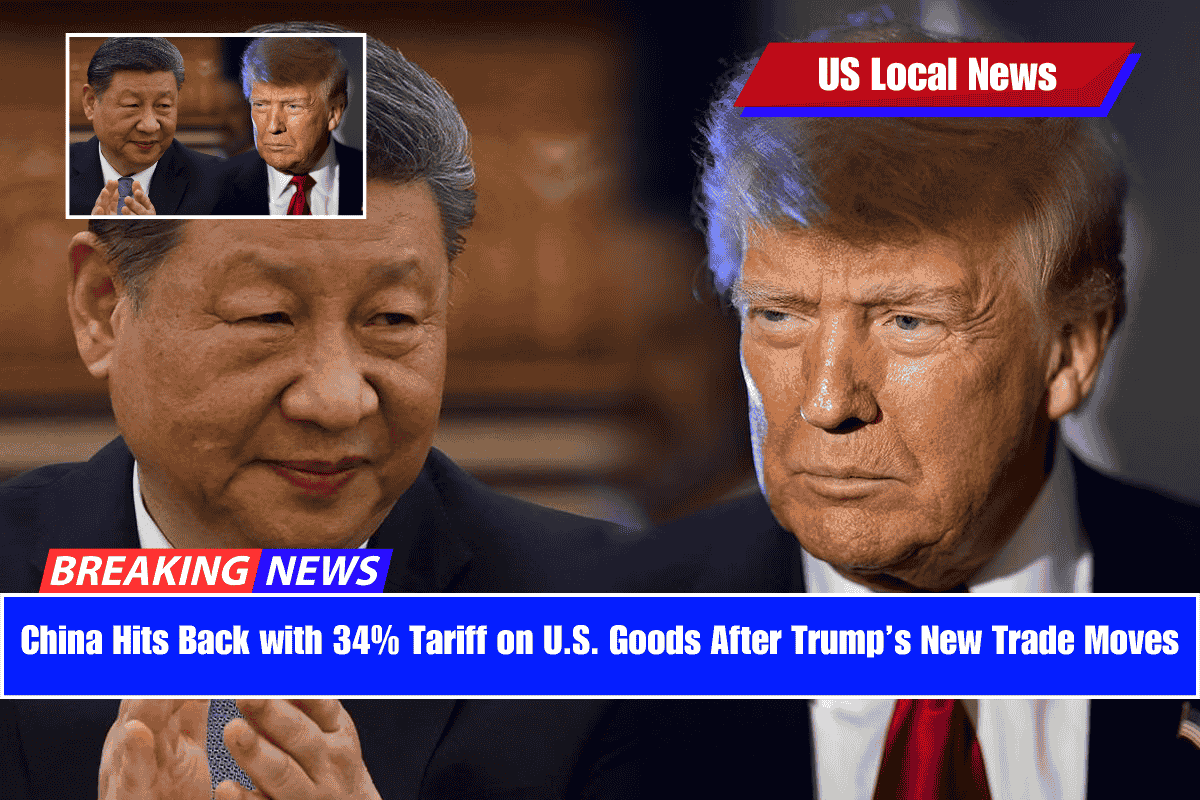China has officially announced a 34% retaliatory tax on U.S. imports, following President Donald Trump’s recent tariff hike on international trading partners. The move escalates ongoing trade tensions between the two global powers and may bring serious consequences for both economies.
China Responds to Trump’s Latest Tariffs
Earlier this week, President Trump revealed new import taxes, including a flat 10% tariff on most foreign goods and a 34% increase on select countries like China. In response, the Chinese State Council Tariff Commission announced its own 34% tax targeting American products, which will begin next Thursday.
In a statement, Chinese officials strongly criticized the U.S. move:
“The U.S. practice is inconsistent with international trade rules… and is a typical unilateral bullying practice.”
They added that the tariffs not only harm China’s interests but also threaten global economic growth and supply chain stability.
More Actions from Beijing
Alongside the new tariffs, China announced several additional countermeasures:
- 11 U.S. companies have been added to China’s “unreliable entity list.”
- Export restrictions were placed on 16 U.S. firms dealing with dual-use products.
- China is limiting exports of 7 rare earth minerals, including gadolinium and samarium, which are vital in electronics and defense technologies.
- China also launched an investigation into medical X-ray tubes imported from the U.S. and India.
China Urges Negotiations
Despite the harsh tone, Beijing left the door open for talks. The commission said it hopes the U.S. will:
“Cancel its unilateral tariff measures and resolve trade differences through consultation in an equal, respectful and mutually beneficial manner.”
Why Did Trump Add New Tariffs?
President Trump announced these tariffs as part of a campaign promise to protect U.S. industry. He also blamed China for not doing enough to stop the flow of fentanyl and illegal drugs into the U.S.
While the administration believes these steps will boost U.S. manufacturing and job creation, critics and economists warn of higher consumer prices, market drops, and even a possible recession.
On top of that, the president introduced higher import taxes on about 60 countries, further increasing global trade tensions.
Legal Challenges Begin
Trump’s new tariffs are already facing legal challenges. A lawsuit filed Thursday by the New Civil Liberties Alliance on behalf of a small Florida business, Simplified, claims the tariffs are hurting American companies that rely on Chinese products.
Simplified sells planners and imports supplies from China. Their legal team argues that the tariffs unfairly punish small businesses.











Leave a Reply